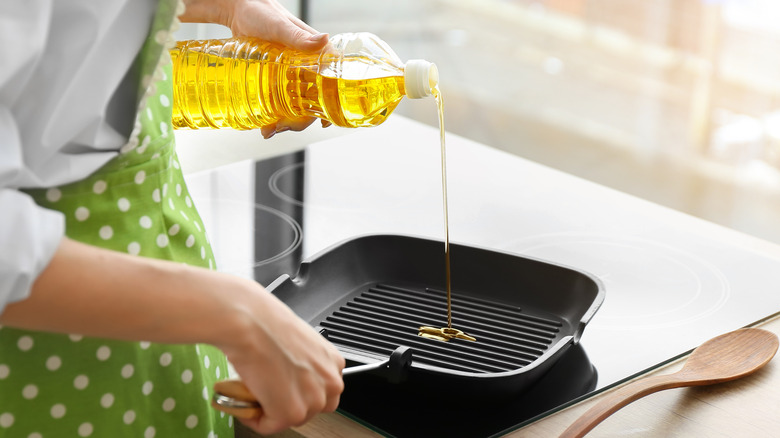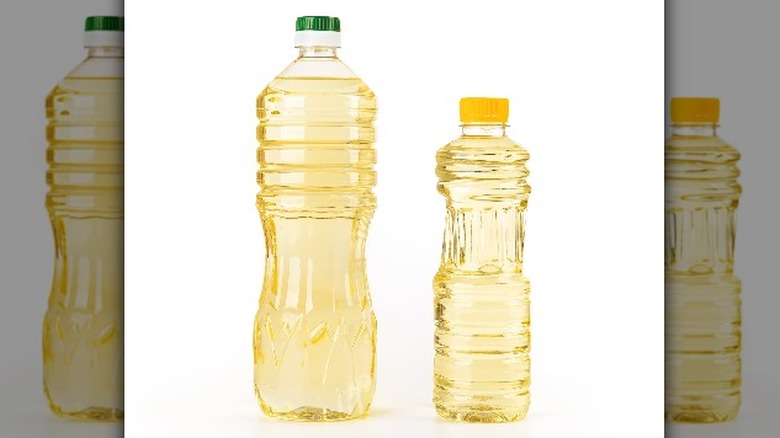The Best Type Of Oil For Frying, According To Science
When you're looking for a new recipe to try for dinner, oftentimes you will come across instances where a recipe is very particular about what ingredients are used in certain circumstances, such as the type of oil. We are all well aware that not everything that appears online is necessarily good advice, and this applies just as well to online recipes as it does to foolhardy social media challenges.
Many times, home cooks will want to create recipes with ingredients that are currently popular or said to offer health benefits, which is why you will often see directions call for using unrefined avocado oil, coconut oil, or even EVOO. Should you do as instructed in such recipes? Science says probably not. There's a little factor called "smoke point" when working with oils that will likely influence the outcome of your frying. This may also call into question whether certain types of cooking oils are more likely to cause a health hazard.
The higher the smoke point, the better
You may have heard that oil has a smoke point, but what does that mean? And which oils have a safe threshold? Serious Eats describes smoke point as the temperature at which an oil begins to smoke, with the next step possibly involving flames. In order to deep fry, stir-fry, or sear safely, you should always choose an oil with a smoke point of at least 400 F. Neutral-flavored oils that are safe for frying, in order from lowest smoke point to highest, are canola and vegetable (smoke point 400 F), sunflower (440 F), corn, peanut, and soybean (450 F), light olive (465 F), rice bran (490 F), and safflower (510 F).
If you're concerned that these oils tend to be less "natural," you're right. Refining processes help an oil stand up to increased heat and achieve a higher smoke point. You may also be worried about the possibility that cooking oils can cause cancer. But, the University of California Davis' Science Says blog notes that potentially carcinogenic fumes pose little risk to home cooks — no matter which type of oil they use. If you want to err on the side of caution, UCD says that sunflower oil breaks down into fumes slightly quicker than olive or canola oils. This may mean that light olive oil (not virgin or extra-virgin) could serve as your all-around kitchen hero.

